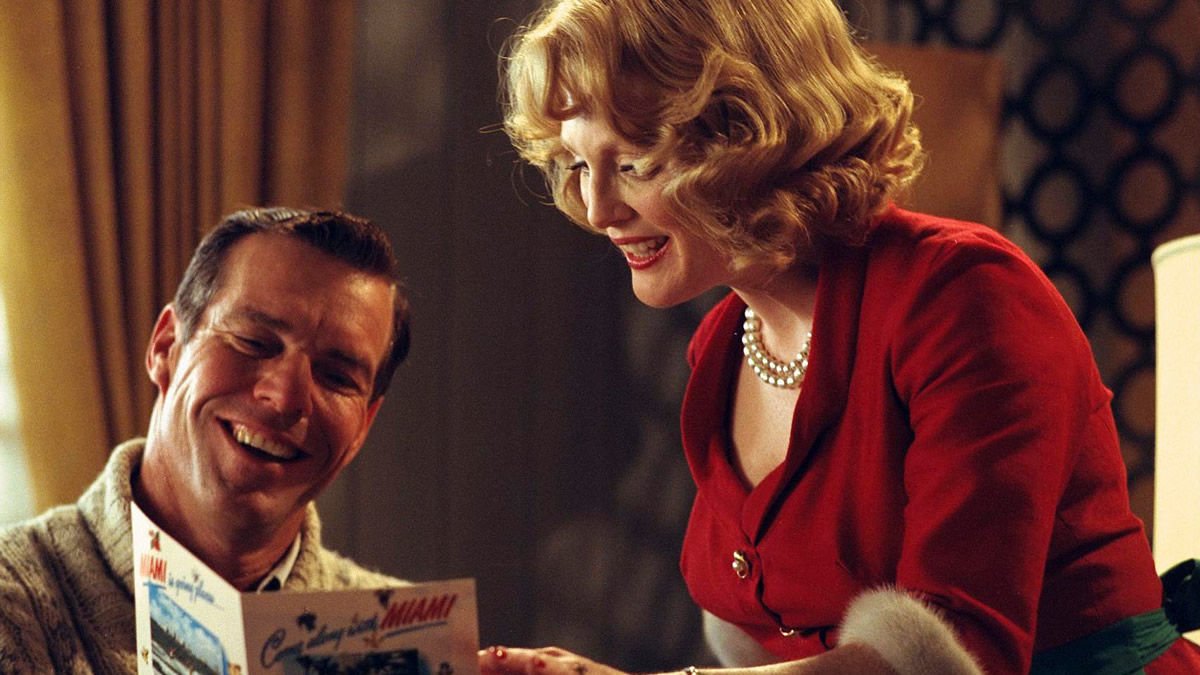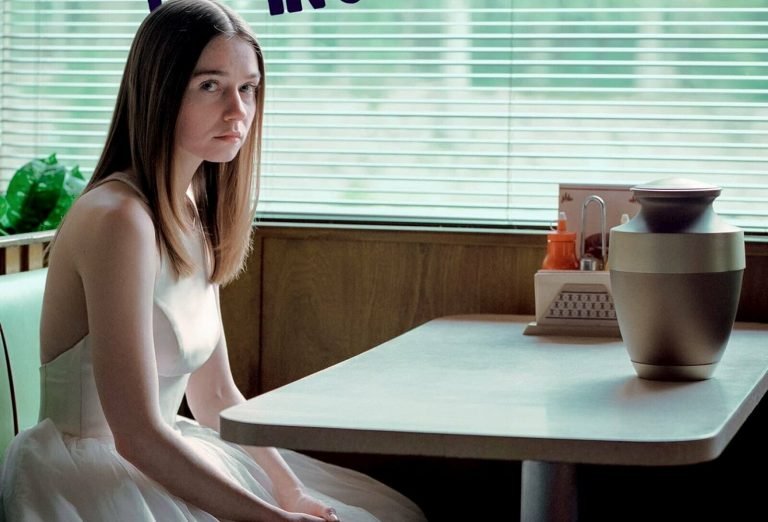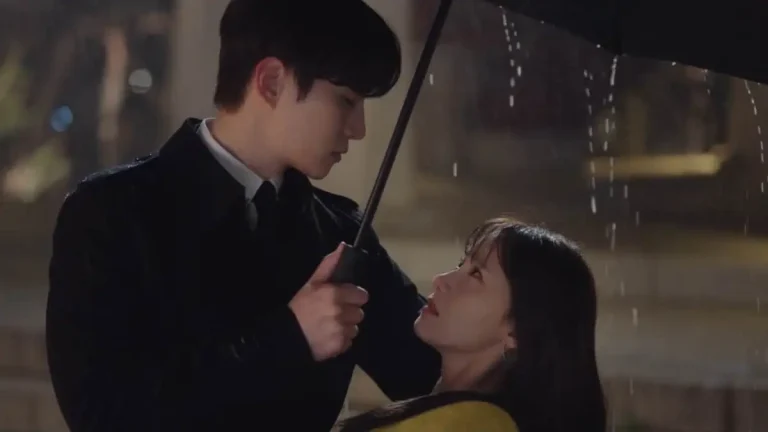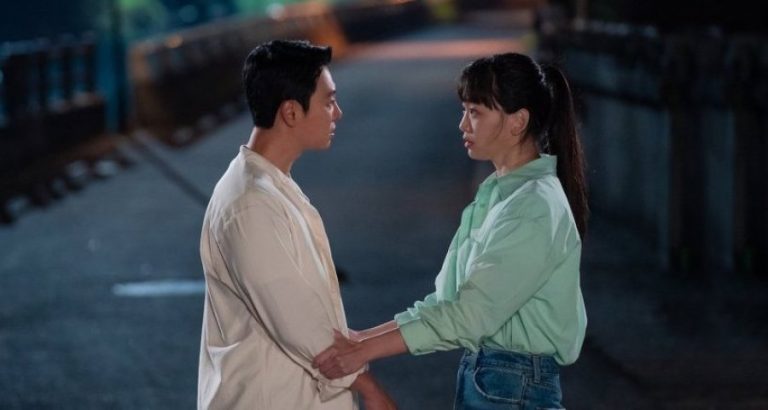On Race Relations & Queerness in Far From Heaven (2002): Three years into the 2020s, the cultural reckoning resulting from the Black Lives Matter movement has forced mainstream media and Hollywood at large to take an ugly look in the mirror. After decades of producing films made from white liberal guilt, the 2010s saw a particular surge in these types of films: anywhere from The Help, to 12 Years a Slave, to Greenbook, production companies made millions and generated legions of Academy Award nominations on films exposing or exploiting historical narratives of Black people. Indeed, while these films can be seen through nuanced lenses, they also struggle to portray Black individuals in ways that establish them with cultural identities outside of slaves, maids, servants, or simply less than white people.
Such is the case with Todd Haynes’ 2002 historical drama Far From Heaven, starring Julianne Moore, Dennis Quaid, Dennis Haysbert, Patricia Clarkson, and Viola Davis in a minor role. It received four Academy Award nominations, was the subject of critical acclaim, and grossed $29 million worldwide. Particular praise was paid to its cinematography, imagery, and Haynes’ use of pictorial motifs throughout to symbolize quiet, everyday oppression in 1950s America. For cinema enthusiasts, the film is visually stunning in that it is a pastiche of the films of Douglas Sirk, mainly All That Heaven Allows (1955), Written on the Wind (1956), and Imitation of Life (1957). These films featured middle-class white women in leading roles, a rarity for the era.
Far From Heaven takes place in the autumn of 1957 in Hartford, Connecticut, and centers on the affluent suburban housewife Cathy Whitaker (Moore), her husband Frank (Quaid), and their two children. On the surface, Cathy and Frank’s life is as complete and fulfilled as social and gender norms of the period could have asked for: Cathy, an accomplished homemaker, and Frank, the prudent breadwinner. But instead of seeing their material accomplishments as achievements, Cathy and Frank’s lives exist floating atop wafer-thin ice, waiting for something bearing the weight of the truth to come along.
The first evidence of such truth slipping through the cracks is when Cathy meets Raymond (Haysbert), the son of her former gardener who recently passed away. Inside her home, being interviewed for a ladies’ magazine, Cathy is startled to find a Black man whom she does not recognize walking around in her backyard. The interviewer immediately suggests calling the police, but instead, Cathy approaches the man with caution to find that he is her late gardener’s son, coming by out of courtesy to check up on her property. Merely by politely interacting with the man and offering him her condolences, Cathy has now earned a reputation, at least in print, for being “kind to negroes.”
But it’s only when Cathy learns that her husband has secrets does she entertain the thought of actively pursuing such acts of kindness to those below her social standing. Deciding to be the thoughtful housewife, Cathy brings Frank his dinner down to his office, where she was told he was working late, which is where she finds him in the throes of passion with another man. Both husband and wife react as responsibly as possible in this historical context, and Frank swiftly begins attending psychotherapy in an attempt to “overcome” his homosexual tendencies.
Once the viewer knows that Frank is a closeted homosexual, Far From Heaven begins its complicated relationship with equating racial oppression in 1950s America with the oppression of homosexuals. While oppression from culture and society does create some kind of bond between individuals, there are a plethora of other factors to consider, primarily that Frank is a privileged white man, whereas Raymond is Black. But on the surface, they are still linked, as Frank’s existence and Raymond’s friendship with Cathy in 1957 Connecticut would have both been illegal.
It wasn’t until the Supreme Court case of Loving v. Virginia in 1967 would interracial marriage —and therefore social acceptance of any kind of interracial interaction—be legalized. Homosexuality was legally considered a mental disorder in the United States until 1973, and it wouldn’t be until 2003 that same-sex intercourse between men would be fully decriminalized. While Frank and Raymond’s oppression do not lend much to each other in terms of race and privilege, their status as outliers of society bonds them together in Far From Heaven.
Since Haynes is drawing inspiration from the films of Sirk here, the director also takes the creative liberty to portray what Sirk simply could not. Production codes in the 1950s would have forbidden the filmmaker from portraying interracial contact or desire of any kind, thus making Cathy and Raymond’s friendship an impossibility in films of that time. Likewise, portrayals of homosexuality would have been equally as illegal to portray, which would have relegated Frank’s character to being strictly heterosexual, at least outwardly. As a result, Haynes’ shot of Frank embracing his lover in his office mirrors the heterosexual couple on the poster for All That Heaven Allows.
Aside from not sharing the same skin color, Frank and Raymond’s statuses as closeted homosexual and oppressed African American also share one monumental difference: one can be kept concealed, and one cannot. Indeed, at Frank’s annual company party, Cathy overhears a conversation about the desegregation of schools, in which a man declares that there couldn’t possibly be any violence like that in the South in Connecticut because “there’s no negroes [here]!” The next shot then focuses on a Black waiter working at the party, signaling that for men like this, Black service workers essentially do not exist.
We then meet Frank in a drunken stupor, telling his colleagues that Cathy’s beautiful appearance is “all smoke and mirrors.” Where Frank can hide his homosexuality behind liquid courage and jabs about his wife’s beauty, Black men like the waiter or Raymond simply cannot. Moreover, if men at this party cannot even perceive a Black server serving them, they would never imagine a gay man could exist among them, either.
This commences a continuous conflation of racial difference and homosexuality in Far From Heaven. Later that night, as Frank sits in bed watching President Eisenhower address the nation in light of the violent protests over school desegregation in Little Rock, Arkansas, Cathy takes the opportunity to ask her husband how his psychotherapy is going. He informs her that what he discusses there is private, and she understands, but it’s the news of Black people seeking civil rights on the news in the background that prompts a discussion of Frank’s queerness, with the two once again mirroring each other.
It is at this point that Cathy throws caution to the wind and begins pursuing an open friendship with Raymond in public, ignoring the disapproving glances at every turn. Indeed, they always meet outside, signaling a need for Cathy to be seen with him. She lets herself be seen with him at an art show, outside a local restaurant, and in the middle of the street.
By contrast, Frank and his queerness occupy more interior spaces where anonymity is more easily accessible, including movie theaters, underground bars, and hotel rooms. Raymond cannot hide his race. It is there in plain sight, even if he doesn’t want it to be. But as a homosexual, Frank must hide his inner desires until he can find an equally interior space where he can let his desires flow freely for even a moment.
The conflation of race relations and queerness in Far From Heaven could not be clearer than when the Whitakers take a vacation to Miami, Florida, in an attempt to save their marriage. It is there that Frank exchanges a glance of a thousand words with a young blond, white waiter as a Black waiter works in the background. The next day, Frank looks around the pool for the blond boy as a young Black child tries to make his way into the pool innocently. Segregation was firmly enforced in 1957 in Florida, leading the pool area to gradually empty. White people choosing to leave the pool after a Black child stepped into it suggests an idea of contamination, which can also be said for the disapproving glances of Cathy’s white friends back in Hartford, who perhaps believe Cathy could be contaminated by her desire for Raymond.
It’s when the pool begins to clear out that Frank spots the blond boy and offers to get Cathy’s book for her from their hotel room. The blond boy follows Frank into the hotel and into their room, where a single shot of Frank in the bathroom displays an eloquent mix of fear and desire on his face. It’s this hookup with the blond boy that leads him to come to terms with his queerness, as when Frank and Cathy return home, he “comes out” to her by informing her he’s fallen in love with another man. Witnessing a pool of white people evacuate merely because a Black child tried to join them moved Frank to accept himself as a homosexual.
Cathy immediately brings up the idea of divorce before we see her confiding in her friend Eleanor (Clarkson), who responds with the age-old adage of, “Who could have imagined Frank was a homosexual!” It’s then that Cathy beckons the courage to tell her friend about her own forbidden desire for Raymond, her own “coming out,” if you will. Where Eleanor reacts to Frank’s queerness with a chuckle, she turns away in disgust at Cathy’s confession to the interracial desire for Raymond. For Eleanor, who in this case represents their society at large, Cathy’s desire for a Black man is more disgraceful and unforgivable than the deviance of Frank’s queerness. Where Frank might be gay, he can still pass for a straight white man on the surface, quieting Eleanor’s anxieties. But for Cathy to be in love with Raymond, whose Blackness cannot be hidden, is purely unacceptable.
Afterward, Raymond informs Cathy that he’s moving to Baltimore, Maryland, as no one will hire him in Hartford any longer because of the scandal of their friendship. When Frank escapes with his blond boy, Cathy says a tearful goodbye to Raymond at the train station, signaling the end of their relationship. Frank finds a way to escape, but the same cannot be said for Cathy and Raymond, as disapproving glances at their outward dishonor of social norms are more reprehensible than two gay white men desiring each other in private. This just speaks to another facet of white privilege, in that white queer men have the option of passing for acceptable in society merely because they’re white. Black men, and certainly Black queer men, have no such option.
Watching Far From Heaven in the 2020s makes the film appear undeniably dated. While its cinematography and homage to films of the era are very aesthetically pleasing, it’s hard to justify the film’s subject matter as helpful or even all that accurate through a 2023 lens. While Far From Heaven does an impressive job of trying to convince us of such, the struggle of African Americans and homosexuals in 1950s America was quite different.
Upon deeper analysis, those differences are visible in the film, but it’s not the groundbreaking proclamation that it was perhaps considered upon release in 2002. The film’s overall message appears to be, “We all have secrets, and we all have moments of desperation,” akin to that of Desperate Housewives. But such a message trivializes the struggle for civil rights for both Black people and queer people since the character we’re meant to sympathize most with is Cathy, still a straight white woman. The film may still be visually attractive, but its enduring attributes end there.








![Ghosts of Mars [2001] Review: Could Have Been Worse](https://79468c92.delivery.rocketcdn.me/wp-content/uploads/2019/09/ghosts-of-mars-screenshot-1-768x320.jpg)